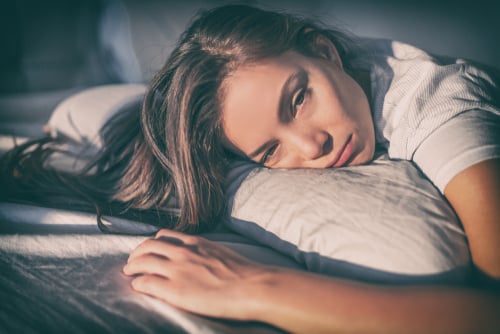Is There A Better Sleeping Pill Than Ambien?
Ambien (generically known as zolpidem) is a central nervous system depressant used to treat certain sleep problems, such as insomnia. There is no universal answer to whether there is a better sleeping pill than Ambien because everyone is different, and each person has distinct needs. Fortunately, there are a variety of sleep aid medications and over the counter (OTC) medicines that can be incredibly helpful when used properly. As is true with any substance, there are risk factors and potential side effects associated with taking sleep aids which exponentially increase when the substance is abused.
Over The Counter
There are a wide variety of OTC sleep aids available. The Mayo Clinic provides the following examples of common over the counter sleep aid options as well as potential side effects:
- Diphenhydramine (e.g., Benadryl, Aleve PM, etc.): Diphenhydramine is a sedating antihistamine. Side effects might include daytime drowsiness, dry mouth, blurred vision, constipation, and urinary retention.
- Doxylamine (e.g., Unisom SleepMelts): Doxylamine is also a sedating antihistamine. Side effects are like those of diphenhydramine.
- Melatonin: The hormone melatonin helps control one’s natural sleep-wake cycle. Side effects can include headaches and daytime sleepiness.
- Valerian: Supplements made from this plant are sometimes taken as sleep aids. The efficacy remains controversial as few studies indicate therapeutic benefits, while other studies haven’t found the same benefits.
Most OTC sleeping aid medications contain antihistamines to produce its sedative effects, which can be highly addictive.
Prescription Sleep Medications
There are two main categories of prescription sleeping pills that are currently used in the medical field to treat sleep disorders. These include benzodiazepines and non-benzodiazepines. Benzodiazepines include medications that are not only used as sleep aids, but also used to treat anxiety disorders. They work by interacting with the neurotransmitter GABA (gamma-Aminobutyric acid). The medication interacts with the neurons in one’s brain to suppress and calm down electrical excitement. Benzodiazepines have highly addictive qualities and if abused can quickly lead to addiction. Commonly known benzodiazepines medications include Ativan (lorazepam) and Xanax (alprazolam). Non-benzodiazepines are sedative-hypnotic medications. They also work by interacting the GABA, but primarily focus on and activate the receptors in one’s brain that have to do with sleep, instead of benzodiazepines that also target anxiety. Non-benzodiazepines hold significantly fewer addictive qualities than benzodiazepines. According to Addiction Center, the three most prescribed sleeping medications include: Sonata (zaleplon), Lunesta (eszopiclone), and Ambien. Prior to prescribing a sleep aid medication, a medical professional will consider all specific risks as they relate to the patient.
For Information and Support
Substance abuse and addiction can be incredibly dangerous and can result in severe short and long-term consequences. If you or someone you know is suffering from substance abuse or addiction, please get help as soon as possible. The earlier you seek support, the sooner you and your loved ones can return to leading happy, healthy, and fulfilling lives. There is no reason to go through this alone, and we are here to help. Please feel free to reach out to us for further information or with any questions regarding substance abuse or addiction. We are available anytime via telephone at: 213-389-9964, or you can always email us at: info@friendlyhousela.org.



